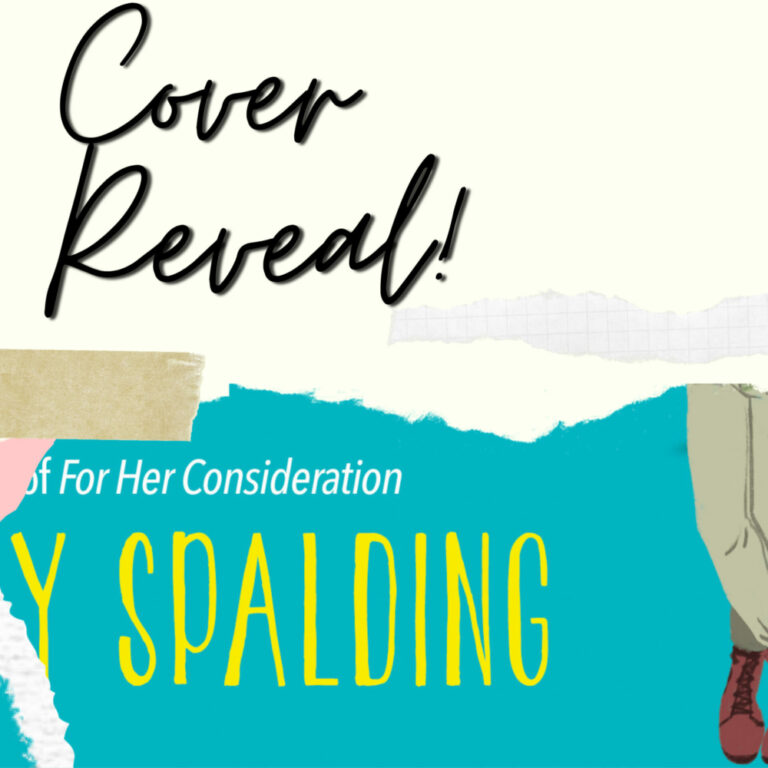I started self-publishing my romance novels in autumn 2017, and in my first year of business—yes, business, but we’ll get to that—I’ve learned a lot.
Now, don’t go thinking I’m an expert, or anything. I realize that the standard of expertise has slipped recently, what with spoiled millionaires being voted in as heads of state and so on, but truly, the knowledge knocking around in my brain is relatively negligible.
It’s just, there is so much to learn in the world of romance self-publishing that I feel a duty to share even my smidgeon of experience with the world. Who knows—maybe this article will help someone else’s first year of self-pubbing go a little more smoothly!
A word of caution: I’m not here to advocate for self-publishing in any way, or even to compare self-publishing with other options, such as traditional publishing. I’m just here to pass on a few of my own philosophies.
I’m also not here to tell you what I’ve learned in a year of writing romance, because that’s a whole different kettle of fish. Which brings me neatly into my first point…
Writing and Self-Publishing are Very Different
In my mind, I actually have two jobs (I know; my mother is very proud): the first one is writing, and the second one is publishing. They aren’t the same.
As a writer, I… write. Draft. Outline. Daydream. Etcetera. As a publisher, I make spreadsheets, devise and test ad copy, manage funds, reach out to bloggers, accept or reject my own book proposals, trawl through the latest bestsellers to monitor the market, anddd—well, the list goes on.
I’m entirely responsible for my own marketing and promotion, editorial process, release schedule, pricing, and more. Even the nitty-gritty of production, like e-book file formatting and what colour paper to print on, is down to me. Self-publishing is a business, and as a self-published author, I am a businesswoman.
The problem with being a creative and a businesswoman at the same time is, there’s this idea that the two identities should never meet. That, if you were a true writer and artiste, you would never be so gauche as to attempt to sell your work. That, if you must survive on something more than a tin of beans a day, you should endeavor to do so without dirtying your magical hands with the filthy reality of finance and marketing. Ugh!
Now, I don’t hold with that sort of nonsense, because I’m from good farming stock. We’re sensible. It’s in the blood. However, there is a grain of truth to the idea that creativity and business don’t mix well. A year ago, I optimistically expected my two jobs to coexist without issue. I thought they would intertwine like beautifully braided yarn, or something. But, obviously, they didn’t, because that’d be too bloody easy.
The fact is, it’s hard to switch from one brain to another. It’s hard to go from being an excited author who wants to tell the story of a coked-up cage fighter and a pristine politician, to a businesswoman who knows very well that the hellscape of 2018 is not the right time for that sort of story, and also that cage fighters aren’t ‘back in’ yet. Which I, by the way, blame on Connor McGregor.
It’s also hard to scroll through your book’s reviews in order to find quotes for promotional material. For every five-star fan, there’s someone who sees fit to give a single star because your book about life on a farm in the highlands is “a very poor depiction of New York City”. The nonsensical review will haunt your dreams. The five-star ones will be quickly forgotten.
If you were only an author, you could ban yourself from reviews completely (which would be a sensible decision). But you’re not only an author; you’re also a publisher. So tough titties.
Are you getting the point I’m making here? Are you sniffing what I’m stepping in? Sometimes, your needs as an author and your needs as a publisher will not match. Often, in fact. Stop expecting them to, and start figuring out how to compromise with yourself. Once you’ve sorted that out, you’ll be A-okay.
Authenticity is Free
These days, whether you’re self-published or not, writing a book and slapping your name on it simply isn’t enough. That name needs to mean something; hopefully something distinctive, entertaining, and relevant to your work. I’m talking about your author brand, which is a vital tool for any writer, because it tells people better than anything who you are and what you’re here for.
If you’re a self-pubbed or indie author, you have to work even harder on your brand because it’s your strongest marketing platform. You don’t have the big bucks of a traditional publisher at your back, or posters advertising your book in W.H. Smiths, or mentions in Grazia. Well, you might have some of that if you’re a marketing whizz with a lot of start-up capital, but generally, you won’t. All you’ll have is your name, your identity, and your presence: your author brand.
It can be tempting to craft an authorial persona via your social media, website, and newsletters, that you think your audience will prefer. We might take as an example that particular, shady breed of author who is not a fun, flirty young woman with a vast collection of sex toys, but masquerades as one in order to bond with their books’ ideal audience.
(Yes, that is a genuine example, and no, we don’t have the firepower to set our entire reality alight. Yet.)
Maybe fakery is the way to go if you want big cash-money fast, just like the friendly telemarketer promised, but I don’t think it’s a useful approach. Setting aside issues of morality and integrity for a moment (since, as we’ve established, this is business, and business involves all the integrity of your average non-romancelandia CEO), false author brands are simply a bad idea.
Think about it: if you’re running around upholding a lie all the time, you’re eventually going to forget the lie. You might work extra hard to remember it, and make copious notes about it, but you’re only human, kiddo. You’ll come off as fake (because you will be) and contradict yourself constantly. It’ll be an exhausting mess. And exhausting messes are not an efficient way to succeed.
Plus, your author brand is inextricably tied to your books. If your author brand is not the real you, it won’t jive with the work you’re trying to sell. If it is the real you, it’ll enhance the media experience you offer.
Gail Carriger is an excellent example of this: she writes hilarious comedies of manners in which smart woman wear corsets and wield fancy teapots, and also, there are vampires and stuff. Now, go and check out her website: https://gailcarriger.com
Well, what do you know? Witty posts that reflect her voice, elegant imagery, and lots of tea. Carriger illustrates a key point when it comes to author branding:
If you want to build a readership that genuinely values the words from your brain, you need to represent your brain accurately.
What I’m saying here is, be yourself; it pays off.
“But Talia,” I hear you cry, lazily and nefariously. “What if the words I’m writing are a load of rubbish mercenarily cobbled together in order to make more sweet, sweet schmoney? Should my author brand reflect my own sci-fi and sarcasm-based interests, or should it reflect the content of my books, which are shallow and full of abusive, divining-rod penises?”
To you, I say, go f*ck yourself. LOL, only joking!
No, to you I say, please reconsider your strategies and respect your audience. Don’t write the romance you think people want. Write the romance that lights you up inside and fills you with the urge to imagine your kissy characters kissing in a thousand kissy ways. Or, you know, whatever it is they’re into.
Paying attention to trends and markets and niches is important, but equally important is writing from the heart. Or the brain. Or the gut. At least one of your major organs should be involved; ideally, several.
Have faith in yourself and in your readers. Always be exactly who you are.
It’s Okay to be Friendly
This is something my boyfriend usually whispers to me at parties (he is quite personable; I am not), but it applies beautifully to self-published authordom. Technically, it applies to any sort of authordom, but I think that the stigma around self-pubbing can make some of us feel that we have to be Super Professional at All Times. This is not precisely the case.
Being professional is, of course, important, but that doesn’t mean faking aloofness or gravity. At the start of my career, I was very self-conscious about my online style of communication, which can be summed up as “boundless enthusiasm and love for all, except if you’re evil in which case I’ll skewer you”, because it somehow felt a little bit naughty. A little too real.
See, like most writers, I started out as your common or garden bookworm. I therefore believed that writers were mighty gods who’d deigned to walk among us. JK Rowling’s Twitter feed eventually disabused me of that notion, but I still felt weighed down by the idea that I could only interact with people in a manner that enhanced my Authorial Status.
I convinced myself that I should be politely restrained and distant online—as opposed to my usual punctuation-eschewing, emoji-abusing, meme-dropping self. The only problem was… how could I stem my natural Labrador-like reactions when people were saying such nice stuff about my books, omg?!
Despite my intention to behave with dignity at all times, I soon found myself virtually weeping with joy in the cyber-faces of anyone who bothered to interact with ‘lil old me. Things deteriorated quickly, to the point that I am now a mess of love-heart gifs, exclamation marks, and dick jokes. It’s a sickness. A dickness, if you will.
Any time a reader drops me a line, they are unavoidably snagged by my sticky octopus tentacles (stay with me) and dragged into the murky depths of friendship. Mwahahaha! Of course, if you’re not that kind of person, you don’t need to snag anyone. I’m just saying, if you wanna snag, snag.
I know now that my friendliness is not evidence of my unprofessionalism. (I keep all evidence of my unprofessionalism firmly under wraps, thank you very much.) Friendliness doesn’t make you unprofessional; in fact, the more direct relationship that many self-pubbed authors have with their audience is, to my mind, a benefit.
For one thing, it’s nice and it makes people feel smiley inside. For another, it helps with that whole authenticity thing I mentioned earlier. It’s much easier to be yourself when you’re not trying to come off as a white-bearded village elder. You can be a businessperson without being a briskness person! Ha ha, pun.
And now our discussion has come full circle. Or something. Which leads me nicely to this article’s happy ending.
…That’s All, Folks.
Except not really.
There’s a lot to this self-publishing malarkey, so I could probably drone on for hours, especially if someone provided a box of chocolates for extra brain fuel. Unfortunately, I have no chocolates (clearly, my manservant is slipping) so my energy has flagged and you are now free to leave.
Only joking. You’re never free. Never.
Ahem.
If you’re desirous of more ramblings from the murky depths of my poor, chocolate-less brain, feel free to make your feelings known via witty postcard. I live in Bedroom 2, Pretty Little House Opposite a Wall, Borington, United Kingdom. Alternatively, you could hit me up online. I’ll leave that choice to you.












